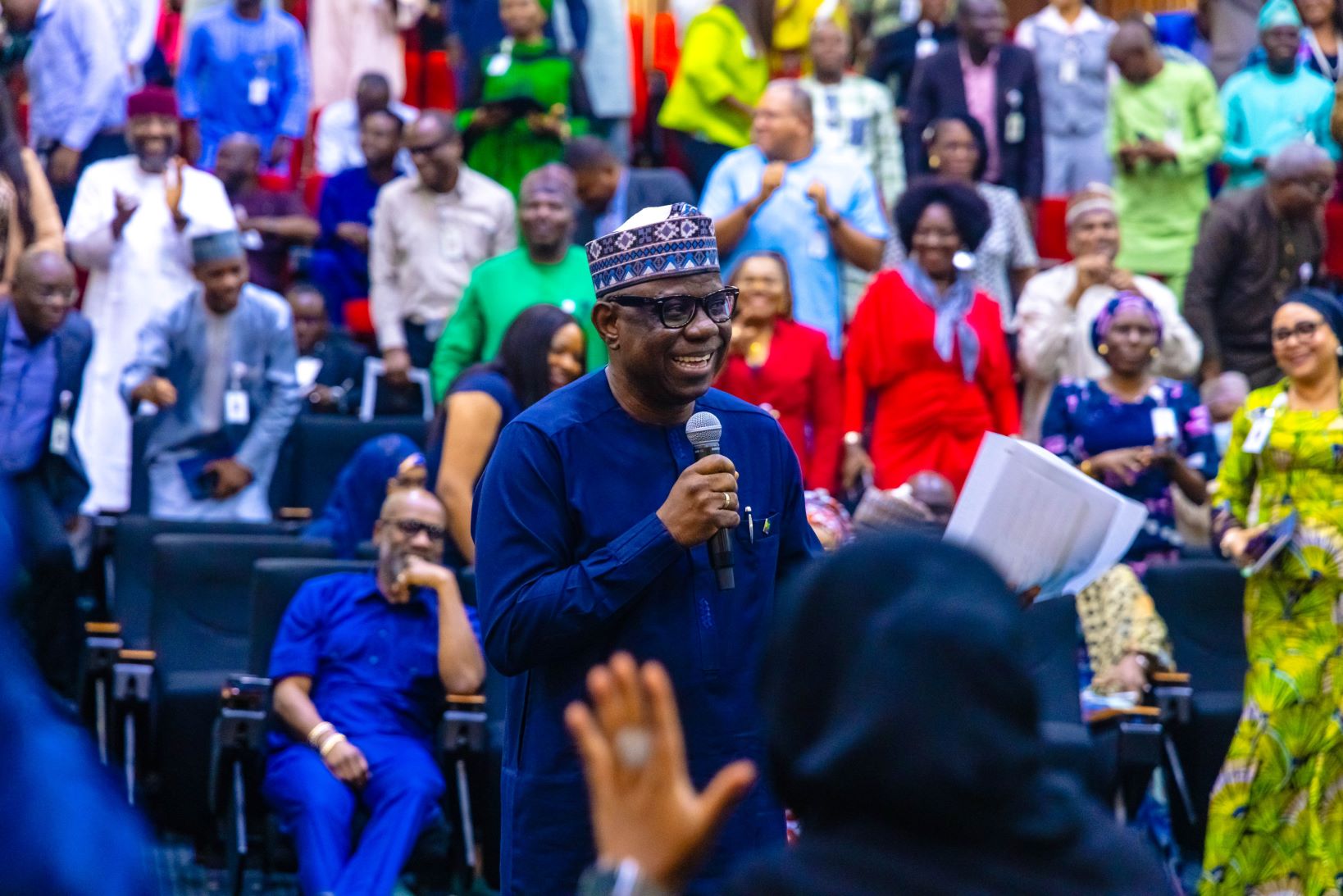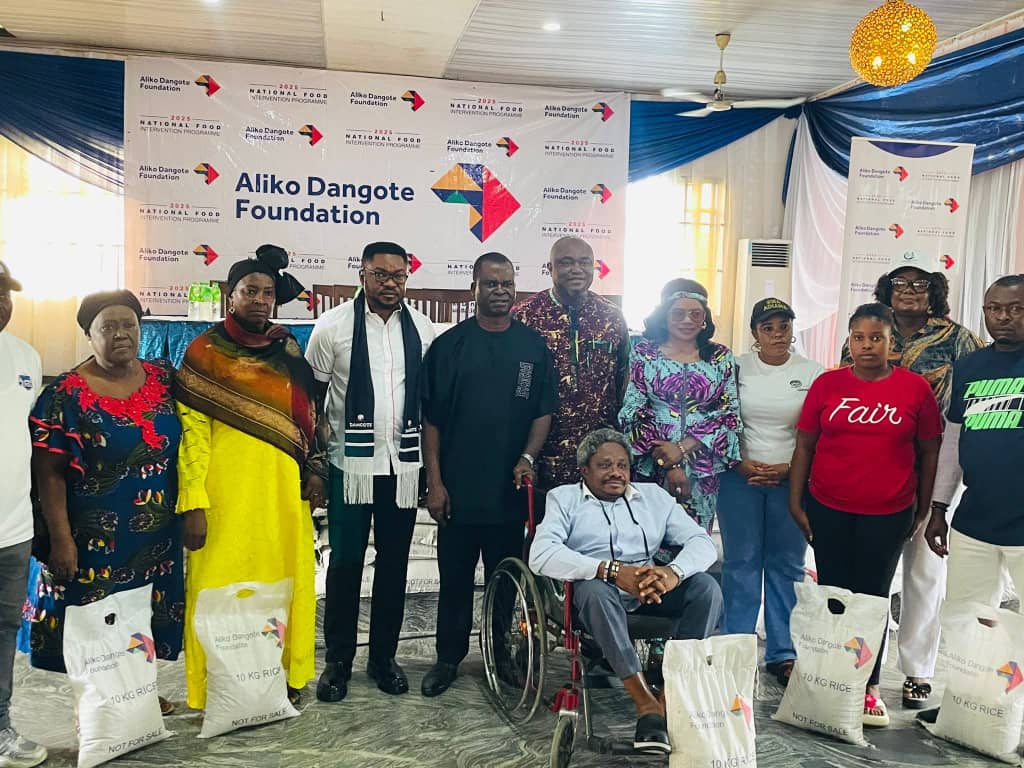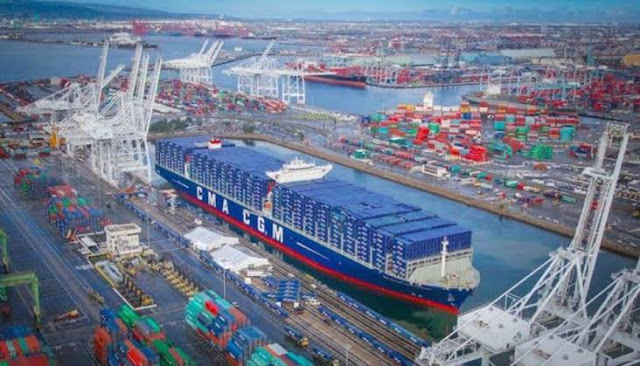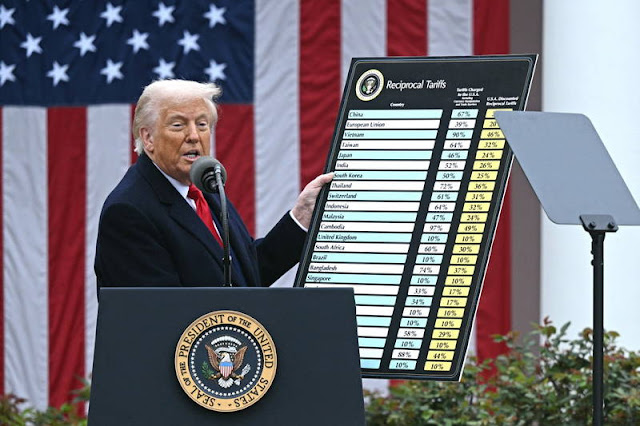
The Nigerian National Petroleum Company Limited (NNPC) Ltd has officially ruled out sale of the Port Harcourt Refining Company, reaffirming its commitment to completing high-graded rehabilitation and retention of the plant.
The Group Chief Executive Officer (GCEO) of NNPC Limited, Bashir Bayo Ojulari, announced this at a company-wide town hall meeting on Tuesday at the NNPC Towers, Abuja.
He stated that the position isn’t a shift. Rather, it is informed by ongoing detailed technical and financial reviews of the Port Harcourt, Kaduna and Warri refineries.
Ojulari said the ongoing review indicates that the earlier decision to operate the Port Harcourt refinery prior to full completion of its rehabilitation was ill-informed and sub-commercial.
Although progress is being made on all three refineries, the emerging outlook calls for more advanced technical partnerships to complete and high-grade the rehabilitation of the Port Harcourt refinery.
Thus, selling is highly unlikely as it would lead to further value erosion.
The announcement comes in the wake of widespread speculation following his remarks at the 2025 OPEC Seminar in Vienna, Austria earlier this month, where he said during an interview with Bloomberg that “all options are on the table.”
The comment sparked speculation and headlines about the future of the nation’s refining assets.
The declaration was received with applause from hundreds of staff attendees, who described the position as a renewed sense of business-focused direction across the organisation.
In April 2021, the Federal Government had awarded a $1.5 billion contract to the Italian company, Marie Technimont, for the rehabilitation of the refinery.
In December 2023, NNPC management, led by its then Group Chief Executive Officer, Mele Kyari, declared that the refinery had reached 88 per cent completion and was scheduled for full operation after a mechanical completion by the end of the year.
That was not to be until November 2024, when the company announced that it had begun trucking out of petroleum products.
But six months later, in May 2025, it announced a shutdown of the facility for another maintenance.
Ojulari has declared that operating the 210,000 barrels per day Port Harcourt Refinery before it was fully completed was ill-informed.
He also ruled out the possibility of selling the refinery to private investors, contrary to recent reports that Dangote Group was about to acquire the company.
He reaffirmed the commitment of the company to completing high-grade rehabilitation and retention of the plant.
Ojulari stated that the position wasn’t a shift but informed by ongoing “detailed technical and financial reviews of the Port Harcourt, Kaduna and Warri refineries.
“The ongoing review indicates that the earlier decision to operate the Port Harcourt refinery, before full completion of its rehabilitation, was ill-informed and sub-commercial,” Ojulari said.
The statement added: “Although progress is being made on all three, the emerging outlook calls for more advanced technical partnerships to complete and high-grade the rehabilitation of Port Harcourt refinery. Thus, selling is highly unlikely as it would lead to further value erosion.’’
The town hall served as more than a performance update —it was an opportunity for candid and constructive engagement.
The Executive Vice Presidents presented progress reports from the Upstream, Downstream, Finance, Business Services, Gas, Power, and New Energy businesses, highlighting operational achievements, ongoing reforms, and areas requiring attention.
In a tone marked by honesty and leadership, challenges and earlier missteps were acknowledged, and a clear roadmap was outlined for the journey ahead.
The announcement reinforces NNPC’s mandate as a strategic custodian of national energy infrastructure and reflects a firm resolve to deliver on the complete rehabilitation and long-term viability of Nigeria’s refineries.
It also signals continuity in the Federal Government’s broader energy security objectives and a commitment to retaining critical assets under national control.
Feedback during and after the session revealed a workforce energised and aligned with the leadership’s vision.
Described as “reassuring,” “transformational,” and “sustainable,” the atmosphere reflected an optimist outlook among employees and hopefulness about the company’s evolving strategic direction. NNPC Ltd will continue to reposition itself as a commercially driven, professionally managed national energy company, grounded in transparency, focused on performance, and unwavering in its responsibility to its number one stakeholder group, Nigerians, Ojulari concluded.
But at the backdrop of the planned injection of further cash projected at about $500 billion into the government refineries, Aliko Dangote, the President of the Dangote Group, has expressed doubts about the future functionality of Nigeria’s state-owned refineries in Port Harcourt, Warri, and Kaduna.
He stated that these refineries, despite significant investments in their rehabilitation, may never operate properly again.
Dangote also mentioned that his decision to build the Dangote Petroleum Refinery was influenced by the government’s refusal to sell him the existing refineries.
Former President Obasanjo had last year expressed similar comments, adding that the NNPC was aware that it could not operate the refineries.
He said some investors, including Aliko Dangote, paid $750 million to take over the refineries; however, his successor, Yar’adua, aborted the transaction.
He said, “I ran to him (Yar’Adua), and I said, ‘You know this is not right.’ He said, ‘Well, NNPC said they can do it.’ I said, ‘NNPC cannot do it.’ I told my successor that ‘the refineries, from what I heard and know, will not work, and when you want to sell them, you will not get anybody to buy them at $200m as scrap.’ And that is the situation we are in.
“So, why do we do this kind of thing to ourselves? NNPC knew that they could not do it, but they knew they could eat and carry on with the corruption that was going on in NNPC. When people were there to do it, they put pressure. In a civilised society, those people should be in jail.”
Earlier this year, former President Obasanjo also said, “I was told not too long ago that since that time, more than $2 billion has been squandered on the refineries, and they still will not work. If a company like Shell tells me what they told me, I will believe them. If anybody tells you now that it (the refinery) is working, why are they now with Aliko (Dangote)? And Aliko will make his refinery work; he will not only make it work, but he will also make it deliver.”
In March 2021, the Nigerian government approved expenditure of USD 1.5 billion for the refurbishment and modernisation of the refinery complex in Port Harcourt.
The main contract for the modernisation of the refinery was also awarded in the same month.








